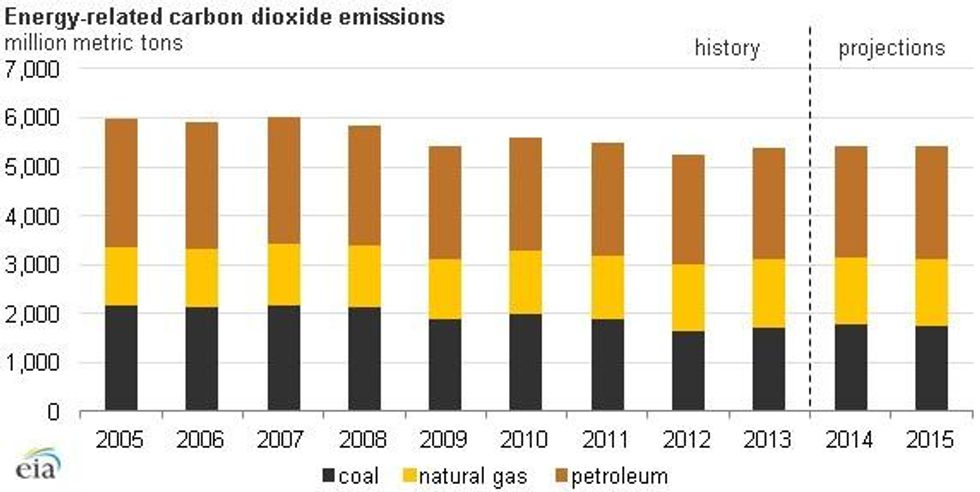The nation's energy-related carbon dioxide emissions in 2013 were roughly 2 percent higher than those in 2012, a U.S. government body
estimates.
The U.S. Energy Information Administration (EIA) says the reason for the rise was increased use of coal, a fossil fuel international climate campaign 350.org has referred to as "the number one threat to the climate."
Still, 2013's CO2 levels are roughly 10% below 2005 levels, the agency says, and projects reductions to continue through 2015.
Part of the "changing energy landscape" which has contributed to overall reduction in CO2 levels, the EIA says, is "An abundant and inexpensive supply of natural gas, resulting from the widespread use of new production technologies for shale gas."
Yet as the Washington Post's Brad Plumer points out, the EIA's assessment only measured CO2 emissions, and did not take into consideration other heat-trapping gases like methane, a potent greenhouse gas linked to the extraction of natural gas.
Gasland writer and director Josh Fox has warned of the dangers of President Obama's embrace of fracking in the name of tackling climate change, writing "Fracked gas isn't a bridge fuel--it's a gangplank." He continues:
Coal is abhorrent. Coal production and use needs to be curtailed immediately, no new coal plants should be built and those that exist now need to be shut down. But the same is true for natural gas fired power plants. We do not want to see greenhouse gas emissions go down in the coal sector at the power plants only to rise from leaking gas in the gas fields, in the transmissions systems and the delivery systems in our major cities.
_______________




